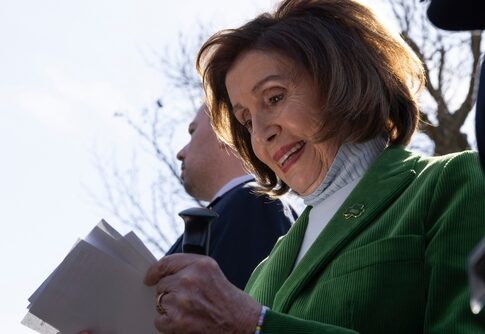Few political figures have stirred as much fascination and controversy over their financial moves as Nancy Pelosi, whose record on the stock market has become the subject of endless debate, raising questions that go far beyond mere investment luck.
Massive Returns on Investments
Nancy Pelosi, former House Speaker, accumulated a remarkable 16,930% return on her stock investments throughout her congressional career.
Such a return is not merely a testament to successful investing but raises eyebrows about the mechanisms behind these gains. In the world of finance, achieving such high returns is rare and typically reserved for the most astute investors or those with unique insights into market movements. Pelosi’s career, however, has been mired in controversy regarding the ethical implications of her financial decisions.
This staggering figure has not only captured public attention but also reignited discussions about the intersection of politics and personal financial gain. Critics argue that her financial success may be linked to privileged information that members of Congress can access, raising concerns about potential conflicts of interest. While insider trading laws apply to all Americans, the enforcement and oversight of members of Congress have been questioned, especially when such staggering returns are achieved.
$130,000,000.00.
That’s how much Nancy Pelosi walked away with in stock profits during her 38 years in Congress.And when asked if Members of Congress should be banned from trading stocks?
She said: “No.”
Of course she did.
She didn’t get rich representing YOU —
She got rich… pic.twitter.com/c0MEiLWgZr— CeCe (@cecegkh) November 13, 2025
Debates on Ethics and Insider Knowledge
Pelosi’s investment success has fueled debates over the ethical boundaries of public officials’ financial investments. The Stock Act, enacted to prevent insider trading by members of Congress, aimed to ensure transparency and accountability. However, the effectiveness of this legislation remains under scrutiny, as Pelosi’s returns suggest that loopholes may exist. The conversation about her financial prowess underscores the need for rigorous enforcement of laws aimed at curbing insider knowledge and maintaining public trust in government institutions.
Public sentiment reflects a growing demand for transparency and accountability in how politicians manage personal finances. The perception that elected officials might leverage their positions for personal gain undermines public trust and raises questions about the integrity of democratic institutions. As Pelosi steps down from Congress, the legacy of her financial achievements could catalyze renewed calls for reform in congressional ethics and financial oversight.
🚨JUST IN!: According to the NY Post, Nancy Pelosi's return on her stock OUTPERFORMED THE DOW by 17,000% for raking in 133 million from 1987-2025!!
ARE YOU KIDDING ME RIGHT NOW?? She OUTPERFORMED the damn DOW? This is EXACTLY why Americans hate D.C. & nothing will be done!!👇 pic.twitter.com/YdK5TMgN4V
— Michelle #AmericaFirst (@MichelleRM68) November 9, 2025
The End of a Controversial Era
With Pelosi’s announcement to leave Congress, an era marked by significant financial gains and political influence draws to a close. Her departure presents an opportunity to revisit and potentially reform policies governing public officials’ financial practices. The spotlight on Pelosi’s stock market success has intensified the debate over how best to balance personal financial freedom with the responsibilities of public service. As new leaders take the stage, they inherit the challenge of restoring public confidence in the ethical standards of their predecessors.
The conversation surrounding Pelosi’s financial legacy underscores the broader societal expectation for transparency and accountability from public servants. As the public scrutinizes the financial activities of Congress members, there is a pressing need for comprehensive reforms that address potential conflicts of interest and enhance the integrity of the legislative process. Pelosi’s financial journey serves as a reminder of the delicate balance between personal success and public duty, highlighting the ongoing struggle to maintain ethical governance amid economic opportunity.
💡IDEA: President Trump should hire Nancy Pelosi in retirement to manage Americans' stock market portfolios. She beat the S&P 500 by 559%.
We could all be retired in 6 months! pic.twitter.com/rpPkf55dC3
— Scott Jennings (@ScottJenningsKY) November 7, 2025
Sources:
The Final Numbers Are Staggering: Pelosi Made a Return of 16,930% on Her Stocks



She’s as dishonest as the day is long!!!!